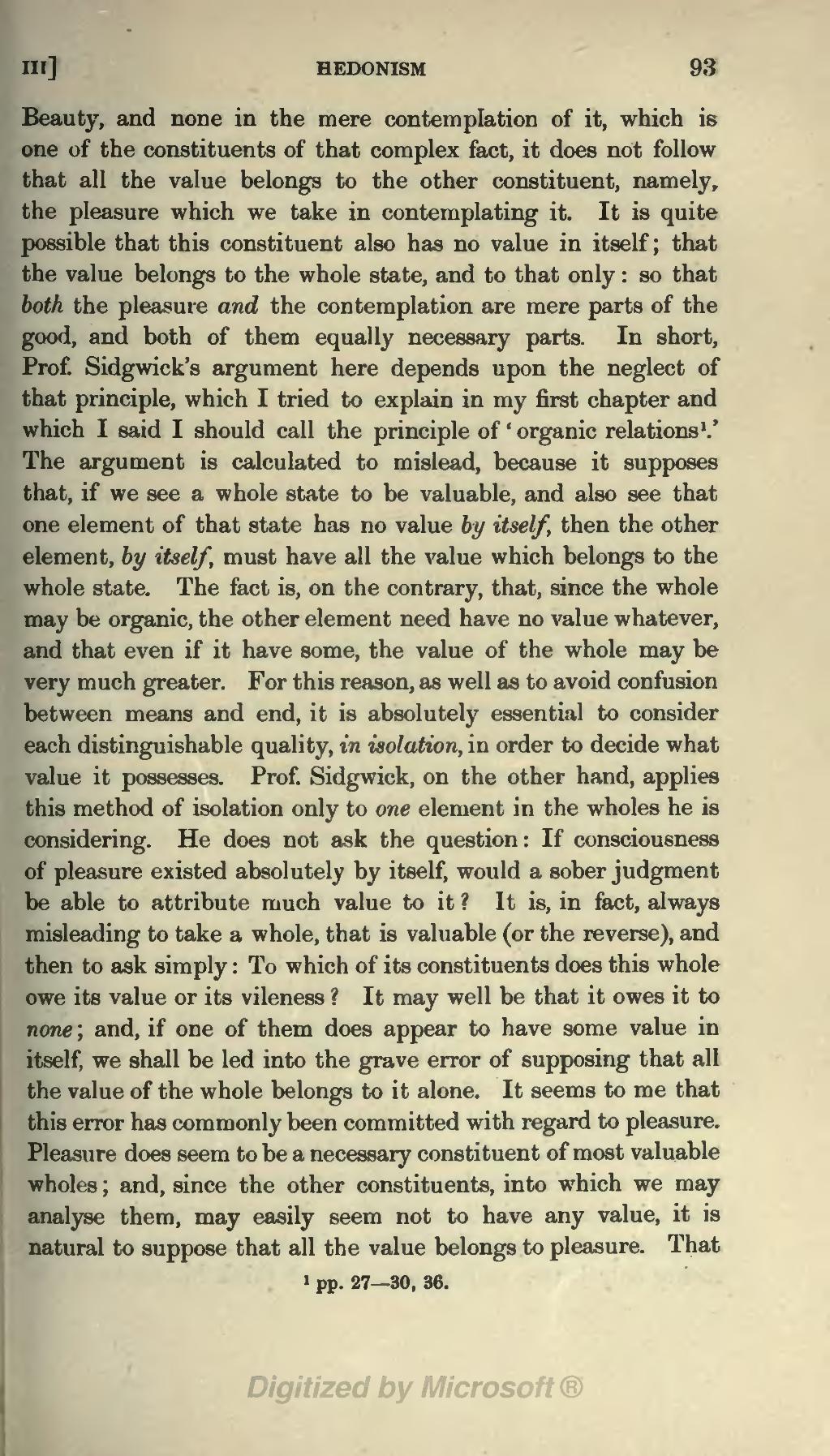Beauty, and none in the mere contemplation of it, which is one of the constituents of that complex fact, it does not follow that all the value belongs to the other constituent, namely, the pleasure which we take in contemplating it. It is quite possible that this constituent also has no value in itself; that the value belongs to the whole state, and to that only: so that both the pleasure and the contemplation are mere parts of the good, and both of them equally necessary parts. In short, Prof. Sidgwick’s argument here depends upon the neglect of that principle, which I tried to explain in my first chapter and which I said I should call the principle of ‘organic relations[1].’ The argument is calculated to mislead, because it supposes that, if we see a whole state to be valuable, and also see that one element of that state has no value by itself, then the other element, by itself, must have all the value which belongs to the whole state. The fact is, on the contrary, that, since the whole may be organic, the other element need have no value whatever, and that even if it have some, the value of the whole may be very much greater. For this reason, as well as to avoid confusion between means and end, it is absolutely essential to consider each distinguishing quality, in isolation, in order to decide what value it possesses. Prof. Sidgwick, on the other hand, applies this method of isolation only to one element in the wholes he is considering. He does not ask the question: If consciousness of pleasure existed absolutely by itself, would a sober judgment be able to attribute much value to it? It is, in fact, always misleading to take a whole, that is valuable (or the reverse), and then to ask simply: To which of its constituents does this whole owe its value or its vileness? It may well be that it owes it to none; and, if one of them does appear to have some value in itself, we shall be led into the grave error of supposing that all the value of the whole belongs to it alone. It seems to me that this error has commonly been committed with regard to pleasure. Pleasure does seem to be a necessary constituent of most valuable wholes; and, since the other constituents, into which we may analyse them, may easily seem not to have any value, it is natural to suppose that all the value belongs to pleasure. That
- ↑ pp. 27—30, 36.
